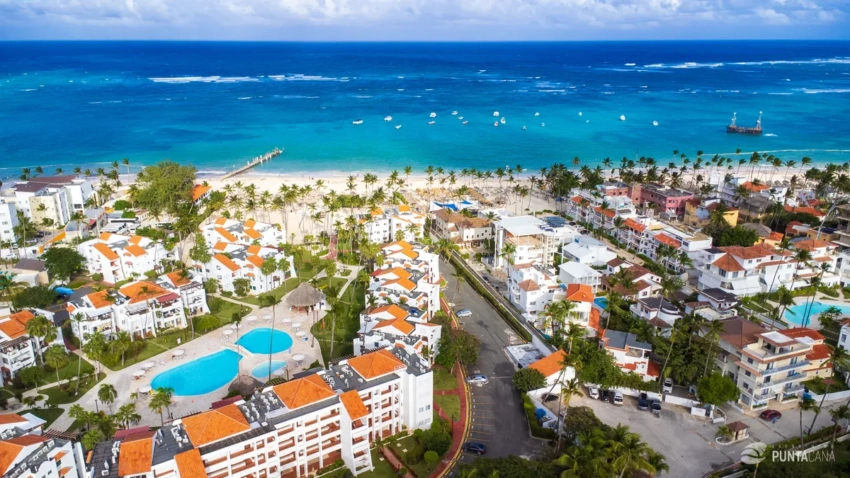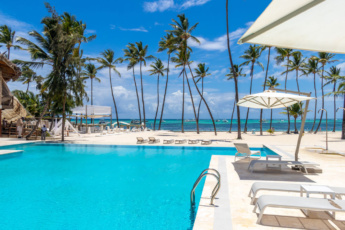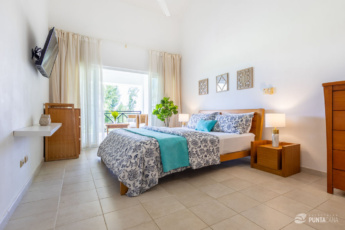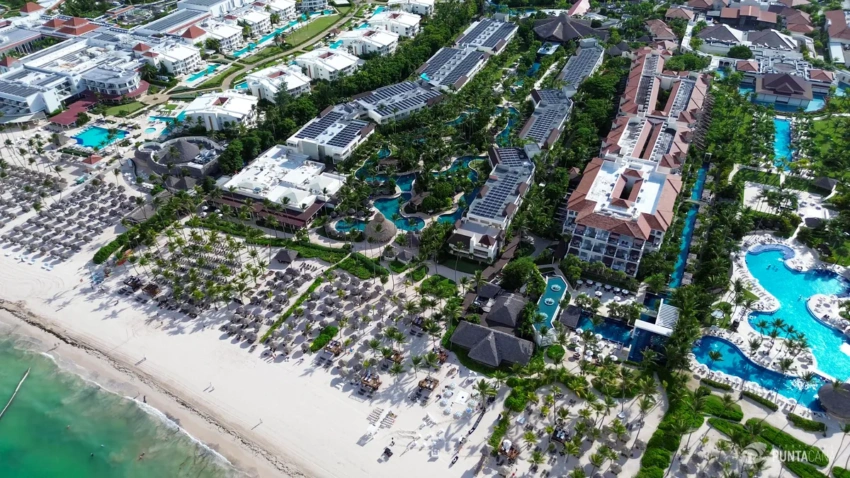How Remote Work Is Reshaping Punta Cana Rentals: Extended Stays in 2025
The Rise of Remote Work in Punta Cana

How Remote Work Is Reshaping Punta Cana Rentals: Extended Stays in 2025
The global shift towards remote work has significantly impacted the rental market dynamics in Punta Cana, transforming it into a sought-after destination for digital nomads and remote professionals. This section delves into how these changes are reshaping the local economy and infrastructure in notable ways.
1. Growth of Digital Nomadism
The trend of digital nomadism has seen a remarkable rise in Punta Cana, with an increasing number of remote workers flocking to this tropical paradise. The allure of warm beaches, affordable living, and a vibrant cultural scene makes Punta Cana an ideal location for those seeking a balance between work and leisure.
In recent years, there has been a noticeable influx of digital nomads in Punta Cana, driven by the flexibility that remote work offers. According to a 2023 survey, approximately 40% of remote workers are considering relocating to regions that offer a conducive work-life environment, and Punta Cana is emerging as a top choice. The availability of rentals tailored for long-term stays, combined with an appealing lifestyle, has accelerated this trend.
2. Infrastructure Improvements

Punta Cana
As the demand for remote work-friendly environments has increased, Punta Cana has responded with substantial improvements in infrastructure to support this new demographic. The enhancement of internet connectivity and the development of coworking spaces are pivotal in accommodating remote workers.
Punta Cana has seen significant investments in high-speed internet, ensuring that remote workers have reliable access to the digital world. Additionally, coworking spaces have proliferated, offering modern amenities and networking opportunities. These spaces are designed to foster a sense of community, providing remote workers with both professional and social benefits.
3. Local Economy Boost
The economic impact of remote workers in Punta Cana is profound, offering a boost to local businesses and services. Remote workers contribute to the economy not only through rental payments but also by supporting local restaurants, cafes, and leisure activities.
Businesses in Punta Cana have adapted to this new clientele by offering services and products tailored to remote workers. From cafes with robust Wi-Fi to gyms offering flexible memberships, the local economy is thriving as it caters to the needs of this diverse group. Furthermore, the presence of remote workers is encouraging more entrepreneurship and innovation in the region.
Economic Contributions of Remote Workers
| Sector | Contribution | Impact |
|---|---|---|
| Housing & Rentals | Increased demand for long-term accommodations | Steady income for property owners |
| Local Businesses | Enhanced revenue from dining and leisure | Growth and expansion opportunities |
| Technology & Services | Higher investment in internet and coworking spaces | Improved infrastructure and services |
In conclusion, the rise of remote work in Punta Cana is reshaping the rental landscape, fostering economic growth, and prompting infrastructural advancements. The burgeoning digital nomad community is ushering in a new era of opportunity and development in this beautiful locale.
Extended Stays: A New Trend in Punta Cana Rentals
As the concept of remote work solidifies itself into mainstream employment, the traditional vacation rental market in Punta Cana is evolving to meet the demands of a new demographic: remote workers seeking extended stays. This shift is transforming the landscape of local rentals, bringing about significant changes in both demand and supply.

Punta Cana
1. Demand for Long-Term Rentals
Punta Cana’s allure extends beyond its pristine beaches and vibrant nightlife; it is becoming a haven for digital nomads and remote workers looking for long-term stays. This change is fueled by the growing desire for more stable and comfortable living arrangements, as remote workers seek to establish a home base that allows them to balance work with the pleasure of living in a tropical paradise.
Remote workers are increasingly demanding accommodations that offer the comforts of home, such as fully-equipped kitchens, reliable internet, and access to coworking spaces. The shift from short-term to long-term rentals is not only a response to the changing work environment but also a reflection of the new priorities of today’s workforce. This trend is evident in the rising number of remote workers choosing Punta Cana as their temporary or semi-permanent home, driving up the demand for long-term rental options.
2. Rental Market Adaptations
Property owners in Punta Cana are adapting their offerings to cater to the evolving needs of remote workers. There’s a noticeable shift towards providing amenities that promote productivity and comfort, such as workstations within apartments and stronger internet connections. Moreover, many properties are now offering flexible lease terms and competitive pricing for extended stays, making them more attractive to remote workers.
Comparative Analysis of Rental Features
| Feature | Short-Term Rentals | Long-Term Rentals |
|---|---|---|
| Lease Flexibility | Fixed Dates | Flexible Dates |
| Internet Speed | Basic | High-Speed |
| Workspace Availability | Limited | Dedicated Areas |
| Pricing Structure | Premium Rates | Discounted Rates for Long Term |
These adaptations are not merely a response to demand but a strategic move to secure a steady stream of income in a market that is increasingly competitive. Property owners are recognizing the potential of catering to remote workers by providing them with the facilities they need to thrive while working remotely.
3. Cost-Effectiveness of Extended Stays
For both renters and property owners, extended stays offer significant financial advantages. Renters often benefit from lower monthly rates compared to short-term rentals, which are typically priced at a premium due to their transient nature. This makes extended stays a cost-effective option for remote workers looking to maximize their living standards while minimizing expenses.
Property owners, on the other hand, enjoy the stability of long-term tenants, reducing the turnover and associated costs of frequent tenant changes. By securing longer leases, landlords can ensure a more predictable income stream, which is especially valuable in markets that experience seasonal fluctuations.
The trend towards extended stays in Punta Cana is reshaping the rental market in profound ways, offering both challenges and opportunities. As remote work continues to transform how and where we choose to live, Punta Cana stands out as an ideal destination for those seeking a blend of work and leisure, making the most of what this tropical paradise has to offer.
Our Apartments for Extended Stays in Punta Cana
Explore our curated selection of apartments designed to cater specifically to remote workers seeking extended stays. These properties offer the perfect blend of comfort, convenience, and connectivity, ensuring you have everything you need to thrive in your remote work environment.

Spacious 3BR Condo in a Quiet Secure Cap Cana Residence - Private Pool, Large Terrace, Prime Marina Location
from $449 night Read more
Quiet and Cozy Family Apartments for Rent - Directly on the Bavaro Beach, Punta Cana
from $299 night Read more
Amazing Lakeview 4BR Apartment in Secure Cocotal Community, Punta Cana
from $145 night Read more
Secure & Private 2 BR Apartment for Rent in Cocotal, Punta Cana
from $109 night Read moreLifestyle Benefits of Remote Work in Punta Cana
As the world continues to embrace remote work, Punta Cana emerges as a prime destination offering unparalleled lifestyle benefits. The region’s unique blend of tropical allure, cultural richness, and modern amenities makes it an ideal setting for remote professionals seeking a harmonious balance between work and leisure.

Punta Cana
1. Work-Life Balance Enhancements
Punta Cana’s serene environment provides a natural boost to work-life balance. The rhythmic sound of ocean waves, combined with the gentle sway of palm trees, creates a calming backdrop that aids in reducing stress and enhancing productivity. Remote workers find that the ability to step away from their screens and immerse themselves in nature is a significant advantage.
- Flexible Workspaces: Many accommodations offer flexible workspaces with ocean views, allowing individuals to enjoy their work environment while maintaining productivity.
- Health and Wellness: The availability of yoga classes, wellness retreats, and outdoor activities like hiking and water sports supports a healthy lifestyle, contributing to better mental and physical health.
Remote workers in Punta Cana often report higher satisfaction levels due to the ease of integrating daily work tasks with leisure activities, making them feel more fulfilled and less prone to burnout.
2. Access to Leisure Activities
Punta Cana is a paradise for leisure activities, offering a wide array of options that ensure remote workers never run out of things to do. From snorkeling in crystal-clear waters to exploring lush rainforests, the region is a playground for adventurers and relaxation seekers alike.
- Water Sports: Remote workers can indulge in activities like surfing, kiteboarding, and scuba diving, experiencing the vibrant marine life of the Caribbean.
- Golf Courses: For those who enjoy golf, Punta Cana boasts world-class courses that provide a perfect blend of sport and relaxation.
- Cultural Excursions: Exploring historical sites and participating in local festivals offer enriching cultural experiences that enhance the quality of life.
The abundance of leisure activities ensures that remote workers can maintain an active and engaging lifestyle, further enhancing their overall well-being.
3. Cultural Experiences and Integration
Living in Punta Cana allows remote workers to immerse themselves in the local culture, fostering a sense of community and belonging. The welcoming nature of the Dominican people provides an enriching experience that goes beyond mere tourism.
Cultural Integration Opportunities
| Activity | Description | Benefit |
|---|---|---|
| Local Cuisine | Participate in cooking classes and try traditional dishes like sancocho and mofongo. | Culinary skills and appreciation of local flavors. |
| Language Classes | Join Spanish language courses to enhance communication skills. | Improved language proficiency and cultural understanding. |
| Community Events | Attend local festivals and community gatherings. | Deeper connection with residents and cultural insights. |
By engaging with the local community, remote workers can develop meaningful relationships and gain a deeper appreciation for the rich cultural tapestry of Punta Cana.
Our Best Villa Rentals in Punta Cana
Considering a remote work setup in Punta Cana? Explore our exclusive villa rentals that offer the perfect blend of luxury and convenience. Whether you’re looking for a beachfront property or a secluded haven, our curated selection ensures that your stay is both comfortable and inspiring.

Cap Cana Oceanfront Luxury Villa with Private Beach, Ladge Pool, Full Staff, Pickleball, 2 Golf Carts
from $6864 night Read more
Two Luxury Private Lakefront Villas in Punta Cana (Cocotal Golf & Country Club) - Pools, Gym, Cinema Room, & Full Staff
from $5117 night Read more
Luxury Golf Villa at Cap Cana Resort in Punta Cana - Punta Espada, Juanillo and Api Beach Clubs
from $3370 night Read more
Luxury Punta Cana Golf Villa in Gated Cocotal Community - Pool, Gym & Movie Room
from $2496 night Read moreChallenges and Solutions for Remote Workers
Remote work in Punta Cana offers a unique blend of tropical lifestyle and professional flexibility, yet it is not without its challenges. Navigating legal intricacies, maintaining reliable connectivity, and finding a supportive community are key hurdles that remote workers need to address to ensure a seamless experience.

Punta Cana, drone view
1. Navigating Legal and Visa Requirements
Understanding the legal landscape is crucial for remote workers planning extended stays in Punta Cana. While the Dominican Republic offers a relatively lenient visa policy, there are specific steps that need to be taken to ensure compliance.
Remote workers often need to navigate visa exemptions or extensions, depending on their nationality and length of stay. The Dominican Republic currently allows for a 30-day stay without a visa for many countries, but this can be extended up to 120 days. It’s essential for remote workers to be aware of these regulations and plan accordingly. Consulting with a local immigration lawyer can be advantageous to avoid any legal pitfalls.
A potential solution for easing this process is the introduction of a digital nomad visa, which some countries offer to facilitate long-term stays for remote workers. While this is not currently available in the Dominican Republic, advocacy from the remote work community could spur its development, offering a streamlined pathway for legal residency.
2. Overcoming Connectivity Issues
Reliable internet is the backbone of remote work, and while Punta Cana is improving its internet infrastructure, challenges remain. In certain areas, connectivity can fluctuate, impacting productivity.
To mitigate these issues, many remote workers opt for accommodations specifically equipped with high-speed internet. Additionally, the burgeoning number of coworking spaces in Punta Cana provides viable alternatives for those facing connectivity issues at home. Spaces like Coworking Punta Cana and Workation Village offer not only reliable internet but also a professional environment conducive to work.
Comparing Internet Solutions for Remote Workers
| Option | Average Speed (Mbps) | Cost (Monthly) | Availability |
|---|---|---|---|
| Home Internet | 20-50 | $40-$60 | High |
| Coworking Space | 50-100 | $100-$150 | Medium |
| Mobile Hotspot | 10-30 | $30-$50 | High |
3. Finding Community Support
Building a community is vital for remote workers to thrive both professionally and personally. In Punta Cana, the remote work community is growing, providing a network for support and collaboration.
Social media platforms and local meetups are excellent resources for connecting with other remote workers. Organizations such as Punta Cana Nomads host regular events, offering opportunities for networking and community building. Additionally, coworking spaces often serve as hubs for community engagement, hosting workshops and social events that help remote workers integrate and form meaningful connections.
For those seeking online support, platforms like Nomad List and Remote Year provide forums and resources where remote workers can share experiences and advice, further enhancing the sense of community.
In conclusion, while remote work in Punta Cana is not without its challenges, strategic planning and leveraging local resources can help create a fulfilling and productive remote work experience. By addressing legal, connectivity, and community challenges, remote workers can fully enjoy the advantages of living and working in this tropical paradise.
Future Outlook for Punta Cana Rentals
In 2025 and beyond, the rental market in Punta Cana is poised for significant transformation as remote work solidifies its presence. This evolution is not only a response to current trends but also a proactive adaptation to future demands and opportunities.
1. Sustainable Development Initiatives
As Punta Cana continues to attract remote workers, the emphasis on sustainable development becomes increasingly crucial. Property owners and developers are recognizing the importance of eco-friendly practices, not only to preserve the natural beauty of the area but also to appeal to environmentally conscious travelers. Initiatives such as solar-powered accommodations, water conservation systems, and sustainable construction materials are being integrated into new developments.
Moreover, the community is seeing a rise in green certifications for rental properties, which ensure that buildings adhere to environmental standards. This trend not only enhances the appeal of these properties but also contributes positively to Punta Cana’s ecological footprint.
2. Technological Innovations in Rentals
Punta Cana’s rental market is also being reshaped by technological advancements. The integration of smart home technology is becoming a standard, with features such as remote-controlled lighting, climate control, and security systems enhancing the convenience and safety of rentals. These technologies cater to the tech-savvy remote workers who expect seamless connectivity and efficiency in their living arrangements.
Additionally, virtual reality (VR) and augmented reality (AR) are revolutionizing the way potential tenants explore properties. Prospective renters can take virtual tours of homes from anywhere in the world, making it easier to commit to long-term stays. This digital shift not only streamlines the rental process but also expands the market’s reach to a global audience.
3. Predictions for 2030 and Beyond
Looking towards 2030, the Punta Cana rental market is expected to continue its evolution, driven by the ongoing growth of remote work. As more professionals seek out destinations that offer both work and lifestyle benefits, Punta Cana is likely to see a diversification in its rental offerings.
We can anticipate a rise in co-living spaces, which provide a community-oriented living experience that combines privacy with shared amenities. These spaces cater to remote workers looking for social interaction and networking opportunities. Furthermore, as digital nomadism becomes more prevalent, there will be a higher demand for customizable living arrangements that can accommodate varying lengths of stay, from a few months to several years.
Rental Market Trends in Punta Cana: 2025 vs. 2030
| Aspect | 2025 | 2030 |
|---|---|---|
| Sustainability | Emerging Practices | Standardized Green Certifications |
| Technology | Smart Home Integration | Advanced AI and VR/AR Usage |
| Living Arrangements | Long-Term Rentals | Flexible Co-Living Spaces |
By 2030, the rental market in Punta Cana will likely be a leading example of how destinations can adapt to the needs of a remote workforce while maintaining a commitment to sustainability and innovation. This evolution will not only benefit the local economy but also enhance the attractiveness of Punta Cana as a top destination for remote workers worldwide.
Frequently Asked Questions
How is remote work influencing the rental market in Punta Cana?
Remote work has led to an increase in demand for extended stay rentals in Punta Cana. People are choosing to work from more desirable locations, allowing them to combine work with lifestyle improvements. This trend is reshaping the rental market by increasing the need for long-term accommodations that cater to remote workers’ needs, such as reliable internet, workspaces, and proximity to amenities.
What features should I look for in a rental property in Punta Cana for remote work?
When seeking a rental property in Punta Cana for remote work, consider features like high-speed internet, a dedicated workspace, comfortable living conditions, and proximity to local services. Additionally, properties with outdoor spaces, views, and access to leisure activities can enhance your living experience.
Are extended stays in Punta Cana more cost-effective than traditional short-term rentals?
Yes, extended stays can be more cost-effective. Landlords often offer discounts for longer rental periods. This makes long-term rentals an attractive option for remote workers looking to balance affordability with the benefits of living in a tropical location.
Will I face any legal requirements for extended stays in Punta Cana as a remote worker?
For extended stays, it’s crucial to understand the local visa and residency regulations. Typically, tourists can stay for up to 30 days without a visa, but longer stays might require a residency permit or an extended tourist visa. It’s advisable to check with the Dominican Republic’s consulate for the most current requirements.
How is the local infrastructure in Punta Cana adapting to support remote workers?
Punta Cana is increasingly adapting to support remote workers by investing in better internet infrastructure and creating coworking spaces. Local amenities and services such as cafes, gyms, and leisure activities are also expanding to cater to the needs of a growing expatriate community.
What should I consider regarding safety and healthcare when planning an extended stay in Punta Cana?
Safety can vary by neighborhood, so research the area before committing to a rental. Regarding healthcare, ensure you have adequate health insurance that covers international stays. Familiarize yourself with local healthcare facilities and emergency services.
Is it easy to integrate into the local community while working remotely in Punta Cana?
Integration into the local community can be facilitated through language classes, joining local clubs or activities, and participating in community events. Punta Cana has a growing expatriate community, which can also provide support and social opportunities.
How might the demand for remote work rentals in Punta Cana change by 2025?
The demand for remote work rentals in Punta Cana is expected to continue growing as more people embrace flexible work arrangements. This trend may drive further development of infrastructure and services tailored to remote workers.
What are the potential downsides of remote work in Punta Cana?
While the lifestyle and environment are appealing, potential downsides include adjusting to a different culture, potential language barriers, and occasional connectivity issues. It’s important to weigh these factors against the benefits when considering an extended stay.
What is the typical cost range for extended stay rentals in Punta Cana?
The cost of extended stay rentals in Punta Cana can vary widely depending on location, amenities, and size. On average, expect to pay anywhere from $800 to $2,500 per month. Properties with premium features or prime locations may cost more.
